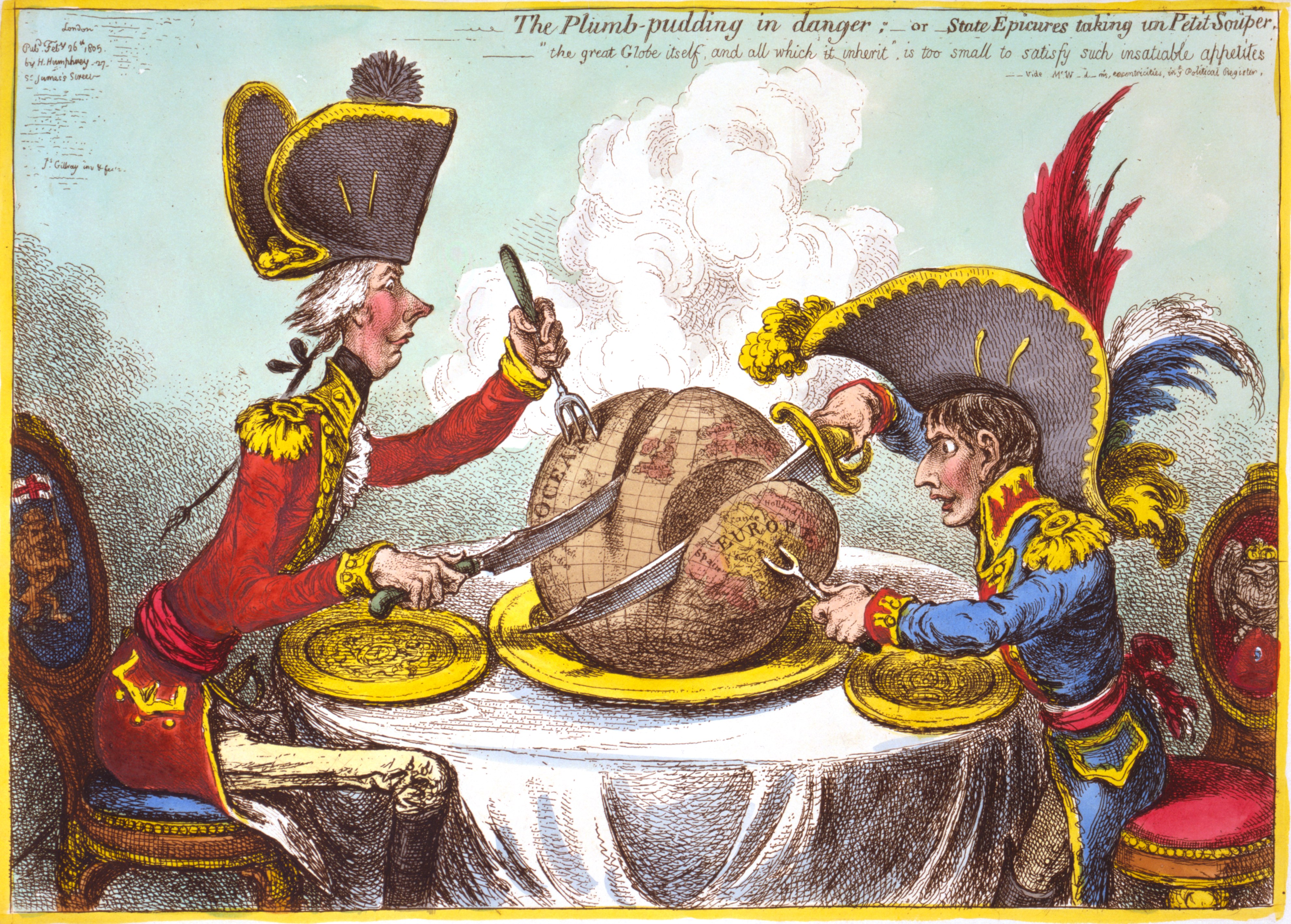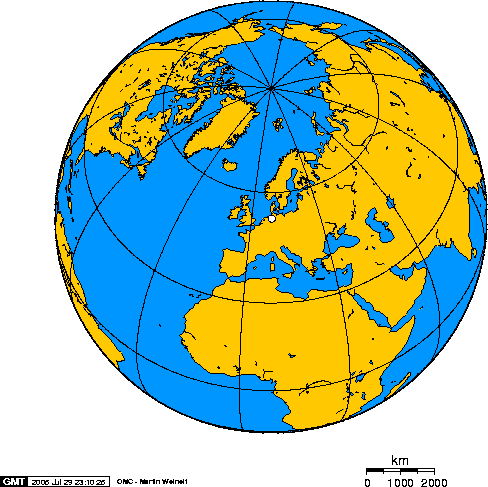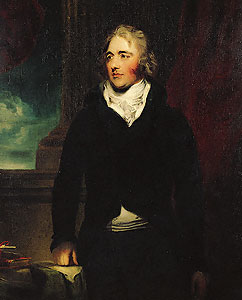|
Hanover Expedition
The Hanover Expedition, also known as the Weser Expedition, was a British invasion of the Electorate of Hanover during the Napoleonic Wars. Coordinated as part of an attack on France by the nations of the War of the Third Coalition, Third Coalition against Napoleon by William Pitt the Younger and Robert Stewart, Viscount Castlereagh, Lord Castlereagh, planning began for an invasion of French territories in July 1805. Hanover, previously a British possession, was chosen as the goal of the expedition, with Swedish and Russian forces under Gustav IV Adolf and Alexander Ivanovich Ostermann-Tolstoy brought in to support the endeavour. Key to the success of the invasion was the support of Prussia, a nation poised to threaten France but not as yet openly hostile to the country. George Don (British Army officer), Sir George Don commanded the British expedition and he arrived with an army of around 14,000 men at Cuxhaven in November. To bolster the expedition and to strengthen the resol ... [...More Info...] [...Related Items...] OR: [Wikipedia] [Google] [Baidu] |
War Of The Third Coalition
The War of the Third Coalition) * In French historiography, it is known as the Austrian campaign of 1805 (french: Campagne d'Autriche de 1805) or the German campaign of 1805 (french: Campagne d'Allemagne de 1805) was a European conflict spanning the years 1805 to 1806. During the war, France and its client states under Napoleon I opposed an alliance, the Third Coalition, made up of the United Kingdom, the Holy Roman Empire, the Russian Empire, Naples, Sicily and Sweden. Prussia remained neutral during the war. Britain had already been at war with France following the breakdown of the Peace of Amiens and remained the only country still at war with France after the Treaty of Pressburg. From 1803 to 1805, Britain stood under constant threat of a French invasion. The Royal Navy, however, secured mastery of the seas and decisively destroyed a Franco-Spanish fleet at the Battle of Trafalgar in October 1805. The Third Coalition itself came to full fruition in 1804–05 as Napole ... [...More Info...] [...Related Items...] OR: [Wikipedia] [Google] [Baidu] |
Weser
The Weser () is a river of Lower Saxony in north-west Germany. It begins at Hannoversch Münden through the confluence of the Werra and Fulda. It passes through the Hanseatic city of Bremen. Its mouth is further north against the ports of Bremerhaven and Nordenham. The latter is on the Butjadingen Peninsula. It then merges into the North Sea via two highly saline, estuarine mouths. It connects to the canal network running east-west across the North German Plain. The river, when combined with the Werra (a dialectal form of "Weser"), is long and thus, the longest river entirely situated within Germany (the Main, however, is the longest if the Weser and Werra are not combined). The Weser itself is long. The Werra rises in Thuringia, the German state south of the main projection (tongue) of Lower Saxony. Etymology "Weser" and "Werra" are the same words in different dialects. The difference reflects the old linguistic border between Central and Low German, passing through H ... [...More Info...] [...Related Items...] OR: [Wikipedia] [Google] [Baidu] |
Secretary Of State For War And The Colonies
The Secretary of State for War and the Colonies was a British cabinet-level position responsible for the army and the British colonies (other than India). The Secretary was supported by an Under-Secretary of State for War and the Colonies. History The Department was created in 1801. In 1854 it was split into the separate offices of Secretary of State for War and Secretary of State for the Colonies The secretary of state for the colonies or colonial secretary was the Cabinet of the United Kingdom, British Cabinet government minister, minister in charge of managing the United Kingdom's various British Empire, colonial dependencies. Histor .... List of Secretaries of State for War and the Colonies (1801–1854) ;Notes: UK History of the Foreign and Commonwealth Office {{DEFAULTSORT:Secretary Of State For War And The Colonies War and the Colonies 1801 establishments in the United Kingdom 1854 disestablishments in the United Kingdom Defunct ministerial offices i ... [...More Info...] [...Related Items...] OR: [Wikipedia] [Google] [Baidu] |
Prime Minister Of The United Kingdom
The prime minister of the United Kingdom is the head of government of the United Kingdom. The prime minister advises the sovereign on the exercise of much of the royal prerogative, chairs the Cabinet and selects its ministers. As modern prime ministers hold office by virtue of their ability to command the confidence of the House of Commons, they sit as members of Parliament. The office of prime minister is not established by any statute or constitutional document, but exists only by long-established convention, whereby the reigning monarch appoints as prime minister the person most likely to command the confidence of the House of Commons; this individual is typically the leader of the political party or coalition of parties that holds the largest number of seats in that chamber. The prime minister is '' ex officio'' also First Lord of the Treasury, Minister for the Civil Service and the minister responsible for national security. Indeed, certain privileges, such as List ... [...More Info...] [...Related Items...] OR: [Wikipedia] [Google] [Baidu] |
George III
George III (George William Frederick; 4 June 173829 January 1820) was King of Great Britain and of Ireland from 25 October 1760 until the union of the two kingdoms on 1 January 1801, after which he was King of the United Kingdom of Great Britain and Ireland until his death in 1820. He was the longest-lived and longest-reigning king in British history. He was concurrently Duke and Prince-elector of Brunswick-Lüneburg ("Hanover") in the Holy Roman Empire before becoming King of Hanover on 12 October 1814. He was a monarch of the House of Hanover but, unlike his two predecessors, he was born in Great Britain, spoke English as his first language and never visited Hanover. George's life and reign were marked by a series of military conflicts involving his kingdoms, much of the rest of Europe, and places farther afield in Africa, the Americas and Asia. Early in his reign, Great Britain defeated France in the Seven Years' War, becoming the dominant European power in North America ... [...More Info...] [...Related Items...] OR: [Wikipedia] [Google] [Baidu] |
Boulogne
Boulogne-sur-Mer (; pcd, Boulonne-su-Mér; nl, Bonen; la, Gesoriacum or ''Bononia''), often called just Boulogne (, ), is a coastal city in Northern France. It is a sub-prefecture of the department of Pas-de-Calais. Boulogne lies on the Côte d'Opale, a touristic stretch of French coast on the English Channel between Calais and Normandy, and the most visited location in the region after the Lille conurbation. Boulogne is its department's second-largest city after Calais, and the 183rd-largest in France.Téléchargement du fichier d'ensemble des populations légales en 2017 [...More Info...] [...Related Items...] OR: [Wikipedia] [Google] [Baidu] |
Napoleon's Planned Invasion Of The United Kingdom
Napoleon's planned invasion of the United Kingdom at the start of the War of the Third Coalition, although never carried out, was a major influence on British naval strategy and the fortification of the coast of southeast England. French attempts to invade Ireland in order to destabilise the United Kingdom or as a stepping-stone to Great Britain had already occurred in 1796. The first French ''Army of England'' had gathered on the Channel coast in 1798, but an invasion of England was sidelined by Napoleon's concentration on campaigns in Egypt and against Austria, and shelved in 1802 by the Peace of Amiens. Building on planning for mooted invasions under France's Ancien Régime in 1744, 1759 and 1779, preparations began again in earnest soon after the outbreak of war in 1803, and were finally called off in 1805, before the Battle of Trafalgar. French preparations From 1803 to 1805 a new army of 200,000 men, known as the ''Armée des côtes de l'Océan'' (Army of the Ocean Coas ... [...More Info...] [...Related Items...] OR: [Wikipedia] [Google] [Baidu] |
King's German Legion
The King's German Legion (KGL; german: Des Königs Deutsche Legion, semantically erroneous obsolete German variations are , , ) was a British Army unit of mostly expatriated German personnel during the period 1803–16. The legion achieved the distinction of being the only German force to fight without interruption against the French during the Napoleonic Wars. The legion was formed within months of the dissolution of the Electorate of Hanover in 1803 and constituted as a mixed corps by the end of 1803. Although the legion never fought autonomously and remained a part of the British Army during the Napoleonic Wars (1804–15), it played a vital role in several campaigns, most notably the Walcheren Campaign, the Peninsular War, and the Hundred Days (1815). The legion was disbanded in 1816. Several of the units were incorporated into the army of the Kingdom of Hanover, and became later a part of the Imperial German Army after unification in 1871. The British German Legion, ... [...More Info...] [...Related Items...] OR: [Wikipedia] [Google] [Baidu] |
Brest (France)
Brest (; ) is a port city in the Finistère department, Brittany. Located in a sheltered bay not far from the western tip of the peninsula, and the western extremity of metropolitan France, Brest is an important harbour and the second French military port after Toulon. The city is located on the western edge of continental France. With 142,722 inhabitants in a 2007 census, Brest forms Western Brittany's largest metropolitan area (with a population of 300,300 in total), ranking third behind only Nantes and Rennes in the whole of historic Brittany, and the 19th most populous city in France; moreover, Brest provides services to the one million inhabitants of Western Brittany. Although Brest is by far the largest city in Finistère, the ''préfecture'' (regional capital) of the department is the much smaller Quimper. During the Middle Ages, the history of Brest was the history of its castle. Then Richelieu made it a military harbour in 1631. Brest grew around its arsenal until t ... [...More Info...] [...Related Items...] OR: [Wikipedia] [Google] [Baidu] |
Royal Navy
The Royal Navy (RN) is the United Kingdom's naval warfare force. Although warships were used by English and Scottish kings from the early medieval period, the first major maritime engagements were fought in the Hundred Years' War against France. The modern Royal Navy traces its origins to the early 16th century; the oldest of the UK's armed services, it is consequently known as the Senior Service. From the middle decades of the 17th century, and through the 18th century, the Royal Navy vied with the Dutch Navy and later with the French Navy for maritime supremacy. From the mid 18th century, it was the world's most powerful navy until the Second World War. The Royal Navy played a key part in establishing and defending the British Empire, and four Imperial fortress colonies and a string of imperial bases and coaling stations secured the Royal Navy's ability to assert naval superiority globally. Owing to this historical prominence, it is common, even among non-Britons, to ref ... [...More Info...] [...Related Items...] OR: [Wikipedia] [Google] [Baidu] |
British Army
The British Army is the principal land warfare force of the United Kingdom, a part of the British Armed Forces along with the Royal Navy and the Royal Air Force. , the British Army comprises 79,380 regular full-time personnel, 4,090 Gurkhas, and 28,330 volunteer reserve personnel. The modern British Army traces back to 1707, with antecedents in the English Army and Scots Army that were created during the Restoration in 1660. The term ''British Army'' was adopted in 1707 after the Acts of Union between England and Scotland. Members of the British Army swear allegiance to the monarch as their commander-in-chief, but the Bill of Rights of 1689 and Claim of Right Act 1689 require parliamentary consent for the Crown to maintain a peacetime standing army. Therefore, Parliament approves the army by passing an Armed Forces Act at least once every five years. The army is administered by the Ministry of Defence and commanded by the Chief of the General Staff. The Brit ... [...More Info...] [...Related Items...] OR: [Wikipedia] [Google] [Baidu] |
French Revolutionary War
The French Revolutionary Wars (french: Guerres de la Révolution française) were a series of sweeping military conflicts lasting from 1792 until 1802 and resulting from the French Revolution. They pitted French First Republic, France against Kingdom of Great Britain, Britain, Habsburg monarchy, Austria, Kingdom of Prussia, Prussia, Russian Empire, Russia, and several other monarchies. They are divided in two periods: the War of the First Coalition (1792–97) and the War of the Second Coalition (1798–1802). Initially confined to Europe, the fighting gradually assumed a global dimension. After a decade of constant warfare and aggressive diplomacy, France had conquered territories in the Italian Peninsula, the Low Countries and the Rhineland in Europe and abandoned Louisiana (New France), Louisiana in North America. French success in these conflicts ensured the spread of revolutionary principles over much of Europe. As early as 1791, the other monarchies of Europe looked with ou ... [...More Info...] [...Related Items...] OR: [Wikipedia] [Google] [Baidu] |





.jpg)



